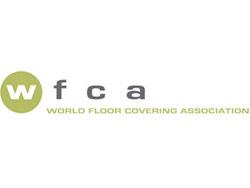WFCA Backs Internet Sales Tax Legislation
Anaheim, CA. Nov. 17, 2011 -- A new bill has been introduced in the Senate with bipartisan support to give states a couple of options to collect sales taxes from out-of-state online businesses.
Senators Lamar Alexander (R-TN), Dick Durbin (D-IL) and Mike Enzi (R-WY) along with seven other senators, introduced a measure in early November that would close a nearly 20-year old loophole and provide a simpler method to collect sales taxes from Internet retailers rather than relying on consumers to pay.
Durbin had earlier introduced a bill labeled the “Main Street Fairness Act” geared to accomplish the same goal, which the World Floor Covering Association endorsed. That proposed legislation failed to attract any Republican support. Much of what was in the Durbin bill has been incorporated into this new proposed legislation.
This bill would close a loophole created in a 1992 Supreme Court decision that exempted retailers who had no physical presence in a state from collecting sales taxes in that state. At the time, the ruling was targeted at catalog purchases, but the explosion of Internet sales has since radically altered the retail landscape.
The legislation would streamline over 7,500 local tax systems, which at the time of the ruling, the Supreme Court said were too complicated for a retailer to determine the right amount of tax to collect.
The WFCA now is backing the new proposed legislation.
The Senate bill provides states with two options to meet certain requirements, including agreeing to voluntarily participate in the Streamlined Sales and Use Tax Agreement.
A total of 24 states have permanently changed their tax laws and implemented the requirements of the agreement, which would help harmonize states’ sales and use tax rules.
Alternatively, states that do not wish to join the group would be allowed to collect the taxes only if they adopt certain minimum simplification requirements.
The legislation allows sellers that make less than $500,000 in total sales in the year preceding the sale to qualify for an exemption and not be required to collect the tax.
